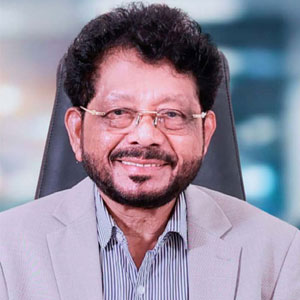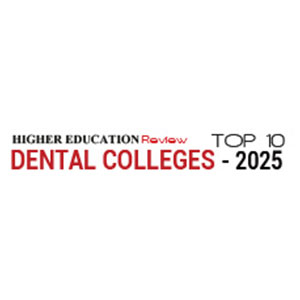
Malabar Dental College & Research Centre: Bridging Tradition With Future-Ready Dental Education
By Dr C P Ali Bava Haji, Chairman
India is home to one of the largest numbers of dental colleges in the world, offering both undergraduate and postgraduate programs that attract students from across India and abroad. Factors such as cost-effective education, access to a diverse clinical case load, and a strong emphasis on academic and practical training have contributed to this growth. As a result, India plays a critical role in shaping the next generation of dental professionals equipped to meet global healthcare challenges. Among the institutions contributing to this landscape is Malabar Dental College & Research Centre, a distinguished name in dental education.
Established in 2007 with an initial intake of 50 BDS students, Malabar Dental College has consistently expanded its academic offerings and infrastructure. By 2014, the BDS intake increased to 100 seats, and in 2016, the college introduced MDS programs across seven specialties. Demonstrating continued academic growth and recognition, by 2024, three of these departments saw their intake capacity rise from one unit to two units.
Malabar Dental College also offers DCI-approved paramedical diploma programs such as the Dental Mechanic course (since 2010), Dental Operatory Room Assistant course (since 2020), and the Dental Hygienist course introduced in 2024. The institution is a pioneer in digital integration in dental education, utilizing platforms like Edendu for online training and MDC Connect and Densoft for managing student progress, attendance, and patient records.
“With a student-centric approach, the college implements support systems such as the mentor-mentee framework, grievance redressal mechanisms, and initiatives under the Kerala University of Health Sciences. Collaborations with leading institutions like Saveetha Dental College and AIMST University, Malaysia, further enrich student exposure. Backed by strong clinical training, high patient inflow, and curriculum modernization aligned with NEP 2020, Malabar Dental College continues to reinforce its commitment to excellence in dental education in India”, shares Dr CP Ali Bava Haji, Chairman, Malabar Dental College & Research Centre.
A Holistic Approach to Dental Education
Malabar Dental College & Research Centre, while operating within an affiliated academic framework, distinguishes itself through a strong emphasis on practical innovation and tailored academic support. The institution’s advanced clinical infrastructure includes state-of-the-art instruments and simulator laboratories, ensuring students gain hands-on experience in realistic clinical settings. These simulation labs help bridge the gap between theory and practice, enhancing student preparedness for real-world challenges.
Digital learning is also a cornerstone of the college’s approach. Through Edendu, a proprietary e-learning platform, students across India access expert-led content, while Malabar’s own students benefit from free enrollment, allowing them to reinforce their academic learning beyond the classroom. Remedial sessions support struggling students, while high performers receive specialized mentoring to sharpen their practical and presentation skills. Research is actively promoted, with undergraduates encouraged to apply for the ICMR Short-Term Studentship (STS), and in the previous year, three students secured this prestigious opportunity.
Malabar Dental College & Research Centre is dedicated to preparing students for successful dental careers by bridging the gap between academic learning and industry expectations
To instill social responsibility, all interns participate in a one-week rotation in pain and palliative care centers. This well-rounded educational strategy ensures Malabar graduates are not only academically proficient but also ethically grounded and professionally prepared.
Advancing Dental Education through Innovation & Opportunity
Malabar Dental College & Research Centre boasts state-of-the-art facilities, including Cone Beam Computed Tomography (CBCT) for advanced oral imaging, Endo Microscopes for precision endodontics, and a PENTA Microscope in the Oral Pathology department, which also serves as a recognized research center. Soft tissue lasers, a conscious sedation unit in pediatric dentistry, and a fully equipped implant clinic further elevate clinical training standards.
Every clinic at the college is equipped with intraoral cameras and RadioVisiography (RVG) systems, enhancing diagnostic accuracy and patient communication. The use of intraoral scanners and digital shade-matching tools ensures students gain hands-on experience with the latest in dental technology. A mobile dental van extends outreach services to nearby communities, offering students exposure to public health initiatives.
Beyond infrastructure, Malabar Dental College is deeply committed to educational accessibility and excellence. Merit-based scholarships and need-based fee waivers are provided to support deserving students, while top academic performers are recognized during the annual convocation. Financial assistance for students and faculty to attend national and state-level conferences encourages continuous professional development.
The college also promotes a strong research culture, offering intramural research grants for faculty and supporting PhD scholars in five university-recognized departments with annual research funding. These combined efforts ensure that Malabar Dental College not only imparts clinical competence but also nurtures innovation, academic growth, and social responsibility among its students and faculty.
Malabar Dental College and Research Centre is a patient-focused institution committed to exceptional dental care and community well-being. Through its Village Adoption Program under the Unnat Bharat Abhiyan initiative, the college supports the upliftment of nearby underprivileged communities. It offers comprehensive free treatment to the fisheries sector and surrounding populations, significantly improving their oral health. Additionally, the college runs special concession programs for differently abled individuals, ensuring inclusive and equitable access to dental care.
Bridging Academia & Industry
Malabar Dental College & Research Centre is dedicated to preparing students for successful dental careers by bridging the gap between academic learning and industry expectations. Students are encouraged to join Indian Dental Association and participate in their activities, fostering awareness of professional trends and expanding their networks. Exchange programs with leading institutions such as Saveetha Dental College and AIMST University, Malaysia, provide valuable national and international exposure. Annual visits to DentCare Dental Lab, one of Asia’s premier dental laboratories, further enrich students’ understanding of modern dental technology.
The college also emphasizes soft skills and clinical competence. A one-year compulsory rotatory internship is supported by monthly CDE programs on advanced topics like implants, lasers, and rotary endodontics. The Personality Development Cell and leadership programs cultivate professionalism and effective communication.
Alumni engagement through 'Alumni Speaks' sessions and active career support via the Placement Cell help guide students in their transition to the workforce. Collaborations with the Indian Dental Association and regular Clinical Club meetings further broaden clinical knowledge. Additionally, 6–8 monthly dental camps offer real-world service experience. Collectively, these efforts ensure students graduate as industry-ready professionals.
Future-Ready Vision
Malabar Dental College & Research Centre has laid out a comprehensive roadmap for future growth and academic innovation. With current infrastructure spanning 1.5 lakh square feet, the college plans to expand by constructing an additional 80,000 square feet block to accommodate its growing postgraduate programs and new diploma courses. Plans are underway to increase PG specialty seats and apply for second-unit enhancements in key clinical departments. To support this growth, new PG hostels and staff quarters are also being proposed.
Academically, the institution aims to strengthen its position in the NIRF rankings and enhance research output by increasing internal grants and fostering a strong research culture. On the pedagogical front, the college is transitioning toward modern, student-centric teaching methods. Faculty are encouraged to adopt flexible roles as facilitators, using Problem-Based and experiential learning models. These initiatives reflect the college’s commitment to global education standards and student success.


